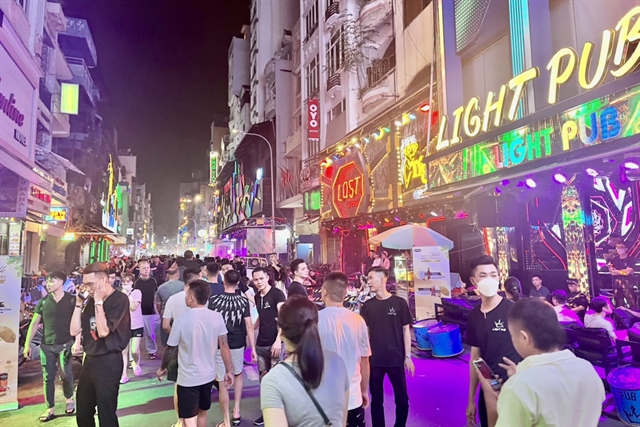As tourism continues to revive, the hotel and tourism industry is suffering from challenges in recruiting qualified human resources post pandemic, industry players warned.

As tourism continues to revive, the hotel and tourism industry is suffering from challenges in recruiting qualified human resources post pandemic, industry players warned.
Speaking at a seminar on Tuesday in HCM City, Dr Nguyen Anh Tuan, director of the Institute for Tourism Development Research, said there was a lack of high-quality staff in the industry.
Vu The Binh, chairman of the Viet Nam Tourism Association, said that human resources were a weak point for the industry even before the pandemic.
“Efficient, hard-working, and resourceful human resources are the backbone of any successful business. It is even more so in the case of the hotel industry.”
Successful hotel operations are sustained by customer-oriented and hard-working employees who have adequate competencies, he added.
A large number of hotels and resorts stopped operation during the two-year pandemic, and coming back could prove challenging, he said.
Unattractive career
Dr. Nguyen Anh Tuan, director of the Institute of Tourism Development, said working in hotels features long hours, low pay, instability, and low status, making it unattractive as a career choice.
As a result, the sector continues to suffer from high staff turnover and difficulties in recruiting qualified staff.
He said it was important to ensure a better work-life balance for employees and enterprises should have favourable policies to recruit workers.
“Key employee retention is critical to the long-term success of any business,” he said.
A hotel staff works especially hard on those days when the rest of the world is enjoying vacations again after two years of pandemic.
Dr. Nguyen Quyet Thang, head of HCM City University of Technology’s Faculty of Tourism, Restaurant and Hotel Management, said it was important to focus on vocational training in tourism, which Viet Nam lacks.
“We should enhance the quality of students who graduate from vocational institutions,” he said. “We should also be more flexible in policies to permit students to learn higher skills and change to other fields, especially foreign languages.”
For the longer term, Thang expects better job direction for parents and students before entering school.
Hotels should work closely with training institutions to recruit long-term or short-term workers for their operations.
Paul Stoll, CEO of the Imperial Hospitality Group, said to maintain tourism growth, Viet Nam needed to address both short- and long-term challenges in developing qualified human resources.
To improve the quality of human resources in the industry, he recommended training centres move towards training what is closely connected to the demands of the job and with more focus on practice.
The ultimate goal is to meet tourists’ expectations about amenities and services according to international standards.
Nguyen Thi Thanh Thuy, general manager at Silk Path Hotel Ha Noi, said many hotels are now rushing to employ staff for their human resource needs.
“In the past, only lucky young people could get a job in good hotels, but now they can both study and get paid,” she noted. “This trend is expected to continue given the current shortage of human resources in the hotel industry.”
Cao Thi Tuyet Lan, CEO of travel firm Viettours, said to recover the international tourist market, Viet Nam’s tourism industry needs to address the lack of human resources. After two years of pandemic, high demand has severely overloaded the tourism industry’s infrastructure.
Lan said, for example, recently 600 customers in a MICE tour could not check in on time at an international five-star hotel in HCM City. The hotel representative said that the reason for the late check-in is not because the rooms are full, but because there are not enough staff to make up the rooms.
Patrick Basset, board of directors of Cityland Education, said the tourism sector needs around 40,000 labourers each year. But around 70 per cent of workers were laid off or moved to other industries during two years of pandemic restrictions, creating a huge worker shortage.
Global issue
Bui Thi Ngoc Hieu, deputy director of the Department of Tourism, said the lack of human resources in tourism, especially the hotel industry, is a global issue, and Viet Nam is no exception.
It has been a longstanding issue in HCM City and was only exacerbated by the pandemic, she added.
HCM City is a leader in training people in tourism, and has 24 universities, 20 colleges and 19 vocational schools. More than 12,000 people graduate from them every year, meeting around 60 per cent of demand, according to Hieu.
In addition to a shortage of human resources, a shortage of infrastructure and strict visa policies have hindered the recovery of the industry. Viet Nam could not reach the target of five million international arrivals this year due to these challenges, experts said.
Domestic visitor numbers topped 71.1 million in the first seven months against a full-year target of 60 million. In the same period, there were only 733,000 international visitors, or 8 per cent of pre-pandemic numbers. — VNS





